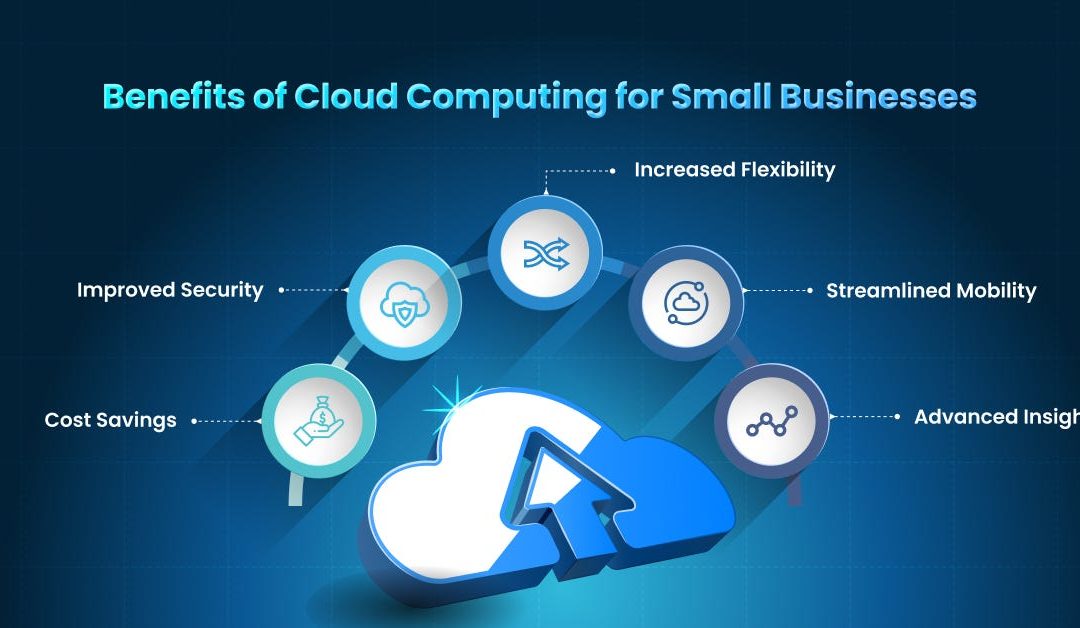In today’s fast-paced digital world, businesses are constantly seeking ways to improve efficiency, enhance collaboration, and reduce costs. Cloud business solutions have emerged as a game-changer, enabling companies to streamline operations and innovate rapidly. Whether you’re a small startup or an established enterprise, embracing cloud technologies is no longer optional—it’s essential.
This article explores how cloud business solutions are revolutionizing the corporate landscape and why they’ve become indispensable for modern companies.
Understanding Cloud Business Solutions
Before diving into the reasons for their transformative power, let’s define what cloud business solutions are and how they work.
What Are Cloud Business Solutions?
Cloud business solutions refer to internet-based tools and services that enable businesses to manage processes, store data, and facilitate collaboration. Unlike traditional on-premises systems, these solutions operate on cloud servers, allowing real-time access from anywhere.
Types of Cloud Business Solutions
- Software as a Service (SaaS): Applications like Google Workspace, Microsoft 365, and Slack for communication and productivity.
- Infrastructure as a Service (IaaS): Platforms like Amazon Web Services (AWS) and Microsoft Azure for scalable IT infrastructure.
- Platform as a Service (PaaS): Tools like Salesforce or Oracle for building and managing custom applications.
These solutions cater to diverse business needs, making them integral to various industries.
10 Reasons Cloud Business Solutions Are Transformative
Cost Efficiency
One of the biggest advantages of cloud solutions is cost savings. By eliminating the need for expensive hardware and reducing maintenance costs, businesses can allocate their budgets more effectively. Most cloud services operate on a pay-as-you-go model, ensuring you only pay for what you use.
Scalability and Flexibility
Cloud solutions grow with your business. Need more storage or additional users? Scaling up is as simple as upgrading your plan. This flexibility allows businesses to adapt to market changes without overhauling their IT infrastructure.
Enhanced Collaboration
Cloud tools like Google Drive, Microsoft Teams, and Zoom allow teams to collaborate in real-time, even across different time zones. Employees can access, edit, and share documents seamlessly, boosting productivity and teamwork.
Improved Security
Contrary to common misconceptions, cloud solutions often provide superior security compared to traditional systems. Providers use advanced encryption, multi-factor authentication, and regular updates to safeguard sensitive business data.
Seamless Integration
Cloud solutions integrate effortlessly with existing tools and platforms, creating a cohesive digital ecosystem. For instance, you can sync your CRM with email marketing tools or analytics software to streamline workflows.
Access to Innovation
Leading cloud providers continually update their services, giving businesses access to cutting-edge technologies like artificial intelligence, machine learning, and data analytics. This fosters innovation without requiring in-house expertise.
Business Continuity and Disaster Recovery
Cloud solutions ensure your data is backed up and accessible even during unforeseen events like cyberattacks, power outages, or natural disasters. This reduces downtime and keeps your operations running smoothly.
Analytics and Insights
Many cloud platforms come with built-in analytics tools that help businesses monitor performance, track customer behavior, and identify trends. These insights drive data-informed decisions, giving companies a competitive edge.
Better Customer Experience
With cloud-based customer relationship management (CRM) systems like Salesforce or HubSpot, businesses can manage interactions more effectively, personalize services, and respond to inquiries faster. This leads to happier, more loyal customers.
Environmental Benefits
By reducing the need for physical servers and data centers, cloud solutions lower energy consumption and carbon emissions. This aligns with sustainability goals and appeals to environmentally conscious customers.
Choosing the Right Cloud Solution for Your Business
Selecting the best cloud solution depends on your business’s unique needs. Here’s how to decide:
- Evaluate Your Needs: Identify whether you require SaaS for productivity, IaaS for IT infrastructure, or PaaS for development.
- Consider Your Industry: Different sectors benefit from specific solutions—healthcare may prioritize data security, while retail focuses on customer analytics.
- Research Providers: Compare popular options like AWS, Google Cloud, and Microsoft Azure for scalability, cost, and features.
Future Trends in Cloud Business Solutions
As technology advances, cloud solutions are set to become even more impactful.
AI and Machine Learning Integration
Cloud platforms are increasingly incorporating AI to automate tasks, improve decision-making, and enhance customer experiences. This trend is reshaping industries like finance, healthcare, and e-commerce.
Hybrid Cloud Environments
Many businesses are adopting hybrid cloud models, which combine public and private cloud environments. This setup offers the best of both worlds—scalability with enhanced control over sensitive data.
Conclusion
The shift to cloud business solutions is transforming modern companies, enabling them to operate more efficiently, innovate rapidly, and adapt to changing markets. From cost savings to enhanced collaboration and sustainability, the benefits are undeniable.
Whether you’re exploring cloud solutions for the first time or upgrading your current setup, now is the time to embrace this powerful technology. The future of business is in the cloud—don’t get left behind!
FAQs
1.What types of businesses benefit from cloud solutions?
Virtually all businesses, from small startups to large corporations, can benefit. The scalability and customization options cater to diverse needs.
2.Are cloud solutions secure?
Yes, reputable providers implement robust security measures, including encryption, firewalls, and regular audits, to protect data.
3.Can cloud solutions save money?
Absolutely! They reduce upfront hardware costs, maintenance expenses, and energy consumption, leading to significant savings.
4.How do I know which cloud solution is right for me?
Consider your industry, business size, and specific needs. Consulting with providers or experts can also help.
5.What if my internet goes down?
Many cloud solutions offer offline capabilities or backups to ensure continuity during connectivity issues.

